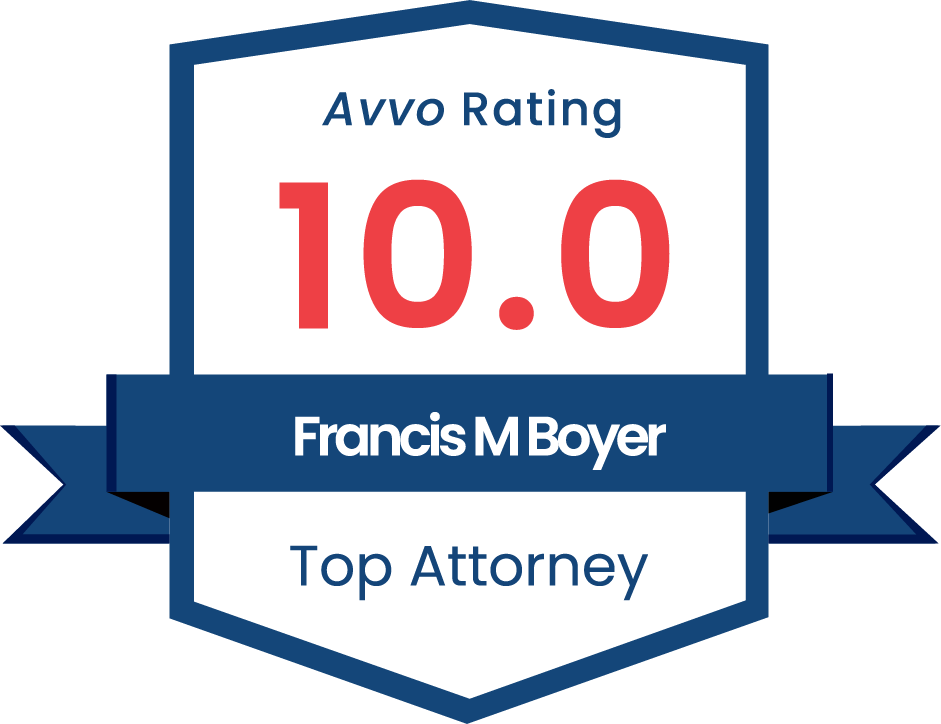

Representing Domestic and International Clients
Intellectual property law involves the laws designed to protect and enforce the rights of the creators and owners of intellectual property. Intellectual property can be a very valuable asset to an individual or business if adequately protected. Once properly identified and protected, the owners of the I.P. can market their work without competition from anyone else. As such, I.P. can add significant worth to your business, and it is something you should protect.
Depending on the type intellectual property involved, protecting it can range from a similar application to a complex procedure. At Boyer Law Firm, our attorneys handle trademarks, copyrights, and trade secrets.
Claiming ownership rights over intangible property is often difficult, which is why as early as 500 BCE, ancient Greece recognized a type of rights to the inventors. Today there are numerous laws to help protect the rights to intangible property both at the state and federal level.
The underlying principle regarding intellectual property law and I.P. ownership is that the ownership resides with its creator, inventor, or developer. However, the I.P. might be owned by a company or business if it was created on behalf of the industry in exchange for some form of compensation, including employment. It should be noted that I.P. rights heavily favor employers over employees.
If you have a unique idea, you might be thinking about protecting it through a trademark, trade secret or copyright. However, there are several things to consider before taking the first step.
Meeting with a knowledgeable intellectual property attorney can save you time and money. After reviewing the information below, contact Boyer Law Firm in Miami, Orlando, and Jacksonville to start your project.
At Boyer Law Firm, we work closely with inventors, entrepreneurs, and small to midsize businesses to transform their ideas into legal registrations. We have extensive experience working with every form of intellectual property in many different industries.
To speak with an attorney about registering your service, logo, or another intellectual property item, contact us. We have assisted countless businesses in obtaining protection for their valuable logos. At Boyer Law Firm, we work closely with small to midsize companies to transform their ideas into legal registrations.
Our firm regularly composes, implements, and enforces non-disclosure agreements for clients. These agreements protect their confidential information and trade secrets when, during normal operations or specific projects, disclosing this information to employees, third-party suppliers, or collaborators is necessary.
Additionally, we advise clients on their rights and duties when subject to a non-disclosure agreement and have successfully litigated these issues on many occasions. By establishing trade secret policies and procedures, we help businesses avoid liability from accidental disclosures.
Confidentiality agreements must be prepared by lawyers to bind employees to comply with your demand to keep their knowledge private, or they will be legally liable for leaks of information.
Other common names for confidentiality agreements are:
An expanding component of Boyer Law Firm’s practice includes the licensing and transferring of various forms of intellectual property rights. These transactions range from licensing agreements to outright sales and assignments of trademarks, trade secrets, and copyrights. Boyer Law Firm’s depth of experience in other forms of commercial transactions provides our clients with comprehensive representation in all aspects of an IP transaction, from planning to negotiation to documentation and closing.
Licensing grants a third-party partner with temporary access to your products for their use, branding, and distribution. Licensing agreements can define parameters of IP use, including but not limited to the quality of product, distribution process, and non-exclusivity clauses. For this reason, it is crucial to consult an experienced intellectual property lawyer to ensure that all aspects of IP protection are established in the contract.
Intellectual Property transfers or assignments are a permanent transfer of IP rights. Specifically, you are permanently selling the rights to someone else. Assignments are typically made by way of employment or contractor agreements, such as in ‘work for hire’ contracts. Additionally, assignments are used when companies acquire the assets of other companies or when intellectual property is used as security for project financing. For example, a movie studio may secure financing by assigning movie rights in return for a loan. Most notably, the transfer of intellectual property rights must be in writing to be enforceable.
Franchising is often an effective form of distribution of goods and/or services sold or traded under your brand. Franchise sales in Florida are regulated by the Federal Trade Commission (“FTC”) and the Florida Franchise Act (“FFA”).
Our franchise attorneys help draft Florida and FTC-compliant:
To learn how we can help you with your trademark, trade secret, or copyright, contact Boyer Law Firm, P.L. We can provide you with valuable advice on protecting your business property.
Offices in Miami, Orlando, and Jacksonville.